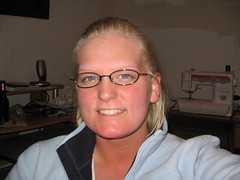The New York Times
Monday, March 26th, 2007
pgs C1&C8
The Story
The Summary: As people buy songs as digital singles rather than in albums the industry is signing artists in the same way.
Last year, digital singles outsold plastic CD’s for the first time. So far this year, sales of digital songs have risen 54 percent, to roughly 189 million units, according to data from Nielsen SoundScan. Digital album sales are rising at a slightly faster pace, but buyers of digital music are purchasing singles over albums by a margin of 19 to 1.
Because of this shift in listener preferences — a trend reflected everywhere from blogs posting select MP3s to reviews of singles in Rolling Stone — record labels are coming to grips with the loss of the album as their main product and chief moneymaker.
The music industry is now embracing the digital single. When Napster was at the height of its popularity the digital single was the music industry's biggest threat. The popularity of mp3 player and the advent of legal digital downloads has made CD almost obsolete.
At the same time, the industry is straining to shore up the album as long as possible, in part by prodding listeners who buy one song to purchase the rest of a collection. Apple, in consultation with several labels, has been planning to offer iTunes users credit for songs they have already purchased if they then choose to buy the associated album in a certain period of time, according to people involved in the negotiations. (Under Apple’s current practice, customers who buy a song and then the related album effectively pay for the song twice).
But some analysts say they doubt that such promotions can reverse the trend.
“I think the album is going to die,” said Aram Sinnreich, managing partner at Radar Research, a media consulting firm based in Los Angeles. “Consumers are listening to play lists,” or mixes of single songs from an assortment of different artists. “Consumers who have had iPods since they were in the single digits are going to increasingly gravitate toward artists who embrace that.”
I love my iPod, and I only have a little one. It's so much easier than a CD player for long trips. I'm not taking my eyes off the road to change a CD (yes I've done it, and yes, I know it's stupid), I'm just blindly grabbing for my iPod while paying perfect attention to my driving. And you can run with them, take them for bike rides, I never liked working ou until I got my iPod. I even have a special playlist for working out. It's full of high-energy songs that help me work harder.
“For some genres and some artists, having an album-centric plan will be a thing of the past,” said Jeff Kempler, chief operating officer of EMI’s Capitol Music Group. While the traditional album provides value to fans, he said, “perpetuating a business model that fixates on a particular packaged product configuration is inimical to what the Internet enables, and it’s inimical to what many consumers have clearly voted for.”
There's really no point in putting the money and energy into a produing a full-length CD when no one will buy it. Maybe K-Fed should have thought of this. Maybe if he would have released a few novelty singles, he would have been a bigger success.
A decade ago, the music industry had all but stopped selling music in individual units. But now, four years after Apple introduced its iTunes service — selling singles for 99 cents apiece and full albums typically for $9.99 — individual songs account for roughly two-thirds of all music sales volume in the United States. And that does not count purchases of music in other, bite-size forms like ring tones, which have sold more than 54 million units so far this year, according to Nielsen data.
One of the biggest reasons for the shift, analysts say, is that consumers — empowered to cherry-pick — are forgoing album purchases after years of paying for complete CD’s with too few songs they like. There are still cases where full albums succeed — the Red Hot Chili Peppers’ double-CD “Stadium Arcadium,” with a weighty 28 tracks, has sold almost two million copies. But the overall pie is shrinking.
The last CD I bought was Jessica Simpson's "A Public Affair" I'm a big "single" person myself. I like to hear the songs I want, with out all the BS. Half the time I skip over half the songs on my iPod.
I also don't normally have the patients to sit through a whole CD by one artist. I like variety, variety is the spice of life. A little bit from column A, a little from B, along with C, D and E as well.
Like the article says, it's a trend. We've gone from the single to the album, and now we're back to the single. In a fifty years, who knows what we'll be listening to. No one could have predicted the iPod in the 80s, the record was just dying out, giving the cassette tape its 15 minutes of fame before the CD took it away. In fact, no other format has had the same run as the record. If digital music lasts as long as records did before falling out of favor, its worth it for the music industry to invest in singles.


No comments:
Post a Comment